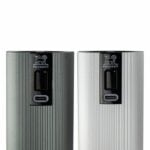Recently, the authorities in Bucharest came up with a series of amendments to the legislation related to cars that are allowed to be used in taxis. In theory, attempts have been made to encourage the purchase of electric and hybrid cars to protect the environment.
The Capital City Hall was in a public debate with the taxi drivers’ representatives the other day. The subject of the debates was related to the proposals of the authorities related to the allocation of taxi licenses, more precisely, to the amendments brought to the current legislation on the subject. In the context in which the City Hall hopes for as many electric cars in traffic as possible, the taxi drivers clearly said that there is no infrastructure necessary to materialize this dream. Drivers have nowhere to charge their electric cars.
Electric cars in the taxi, an impossibility, at the moment
According to the draft regulation for the allocation of taxi licenses, a full electric car has 30 points, a plug-in hybrid benefits from 20 points, a hybrid – 10 points and a Euro 6 car – 5 points. As a reference, until now, the qualification criteria referred to cars with pollution norm 2, 3, 4 and 5, they will be replaced by Euro 6, hybrid, plug-in hybrid and electric.
Mayor Nicușor Dan commented on the subject and said that he is a supporter of the taxi that is a public transport service. In the same context, he mentioned that there are no less than 2,700 taxi licenses available. They are to be allocated in accordance with the new CGMB voting regulations. An important part of the award criteria is defined in the taxi law. The list includes the age of the vehicle, its classification according to the pollution rules, the equipment with air conditioning and the period when the carrier holds the taxi license. “What we can do is change the weight of these criteria – it is an attribute that the law gives to local councils,” said the mayor of the capital.
“We do not have the necessary infrastructure even in Bucharest created. If the 2,700 permits were taken by individuals, not companies – you realize we don’t have the infrastructure to charge the 2,700 vehicles and you should see electrical cables thrown over balconies or windows to charge their cars in the evening. ” said Vasile Stefanescu, President of the Confederation of Authorized Operators and Carriers in Romania.
Taxi drivers also took the opportunity to attack ride-sharing services, such as Uber and Bolt, which are legal means of transportation as alternative transportation. In Bucharest, there are 30,000 licenses for alternative transport and only 6,000 licenses for taxis. “In the end, this transport, which was created to be an alternative, came to dominate absolutely everything. However, there is unfair competition and a total discrepancy between Law 38/2003 on taxi and this Law on alternative transport. (…) We have this unfair competition and people who are forced to go to this activity and pay around 40% of the proceeds to companies that have accounts in the Netherlands or companies of so-called carriers in Bucharest “, Ștefănescu pointed out .

 Renault’s compact family SUV will be called the Symbioz -.
Renault’s compact family SUV will be called the Symbioz -. Peugeot and its new range of salt and pepper mills -.
Peugeot and its new range of salt and pepper mills -. A new Uber Eats ad is being criticized for showing a peanut allergy -.
A new Uber Eats ad is being criticized for showing a peanut allergy -. Pagani announces new track-based hypercar, known as the Huayra R Evo -.
Pagani announces new track-based hypercar, known as the Huayra R Evo -. Introducing the Oscars in the Best Casting category -.
Introducing the Oscars in the Best Casting category -.